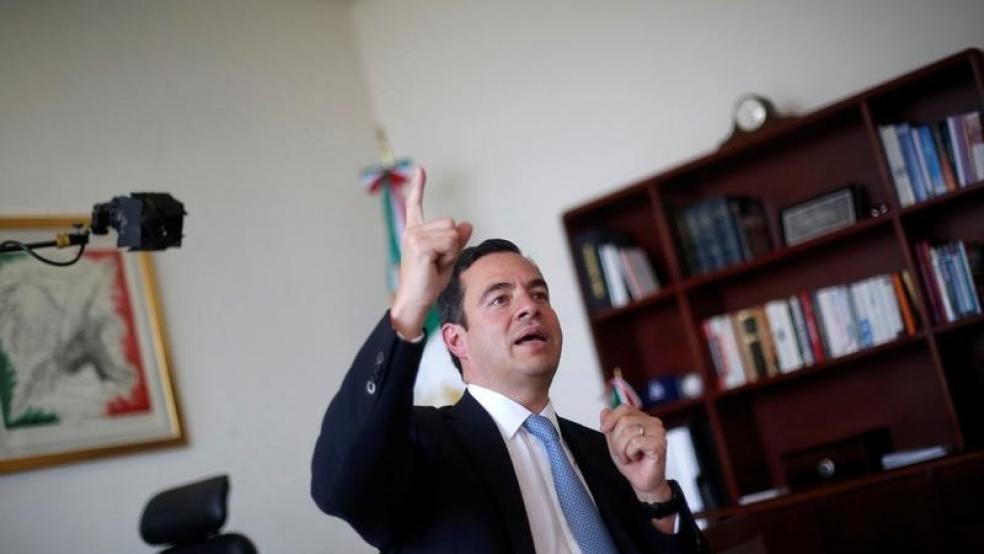OTTAWA (Reuters) - Labor market reforms could both improve the North American Free Trade Agreement and help address U.S. concerns about illegal immigration from Mexico, a senior Mexican official said on Wednesday.
U.S. President-elect Donald Trump has vowed to tear up or renegotiate NAFTA - a trade pact under which Mexico and Canada send a large majority of their exports to the United States - and also says he will expel illegal immigrants.Canada and Mexico have said they are prepared to negotiate improvements to the deal."NAFTA could get even better ... There are so many things we can add to NAFTA and certainly labor (is an issue) we would like to put on the table," said Paulo Carreno, Mexico's deputy foreign minister responsible for North America.Mexican politicians argue that if the United States allowed more people in on regulated seasonal permits, there would be less illegal immigration to the U.S.Carreno said NAFTA could benefit from a measure like Canada's Seasonal Agricultural Worker Program, which allow farms to hire temporary foreign laborers during planting and harvesting seasons.This could help the dairy industry in states like Wisconsin, some of which rely heavily on migrant farm labor, he added."I'm sure that's something the U.S. industries would be happy to have - a more controlled way of having a work force, which they want," Carreno said in an interview on the sidelines of a meeting between senior Mexican and Canadian officials."And the U.S. government would have the control it wants regarding migration and citizenship."Mexico could include labor and environmental rules in any NAFTA talks, President Enrique Pena Nieto said at the APEC Summit in Lima on Saturday, but gave few details.Other areas for improvement include e-commerce, patents and environmental issues related to trade, none of which were included in the 1994 deal, Carreno said.Canada wants any renegotiation to address long-running disputes with the United States over exports of Canadian softwood lumber and U.S. meat labeling rules.Trump has said little about NAFTA since winning the election and Carreno declined to speculate on what he might to do."Every change of government certainly presents challenges - as the ones that are evidently in front of us - but they also represent opportunities," he said."We have had (U.S.) presidents in the past who believed thoroughly in regional integration, we have had some who were not that enthusiastic, and yet the relationship has been growing over the past 30 years." (Reporting by David Ljunggren; editing by Diane Craft)Mexico says labor reforms could improve NAFTA, tackle migration fears

© Edgard Garrido / Reuters



